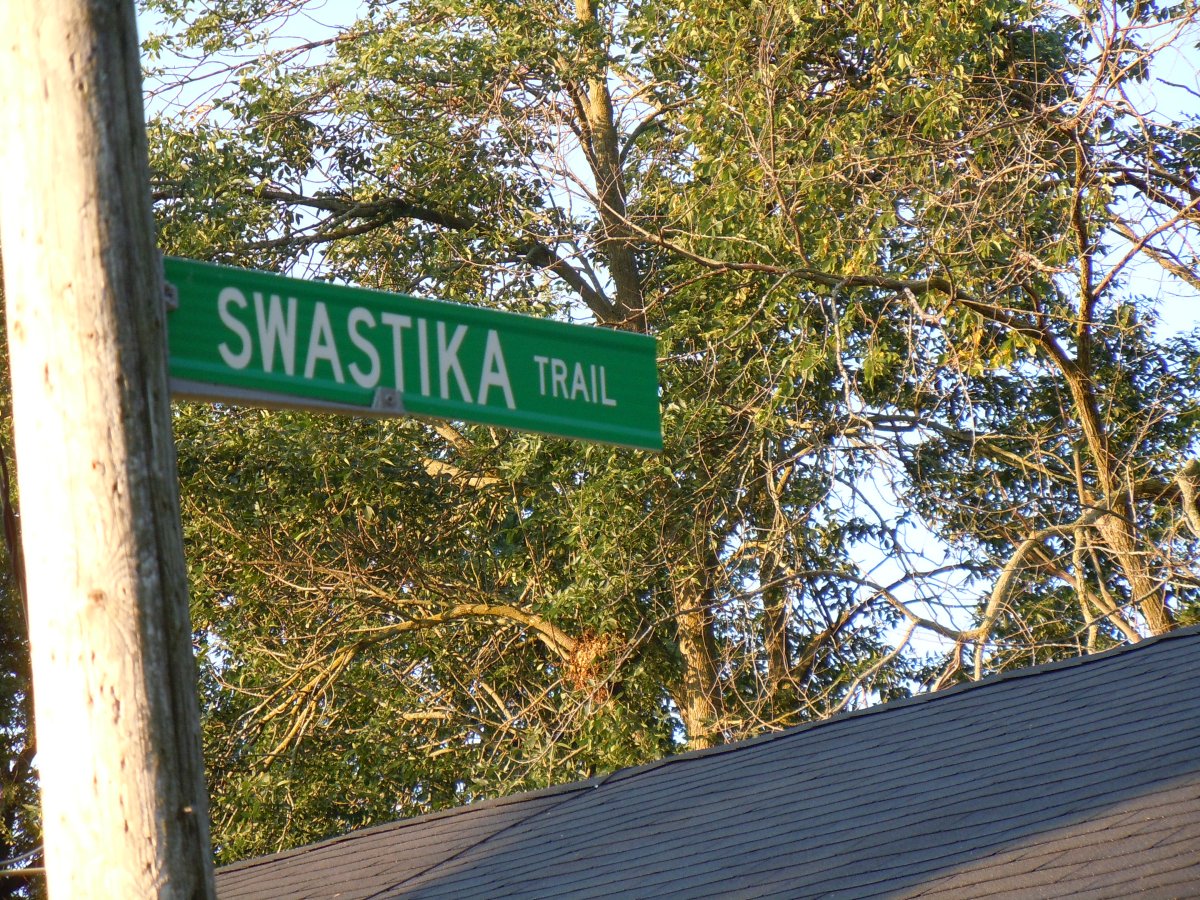A small group of Ontario residents living on a street called Swastika Trail vowed Thursday to continue their fight to change the controversial name after local politicians voted in favour of keeping it.

Councillors of Puslinch Township, about 75 kilometres west of Toronto, made the decision to preserve the street’s name with a 4-1 vote during a meeting Wednesday night.
Randy Guzar, one of four residents of Swastika Trail who led the effort to change the street’s name, said their work on the matter will not stop.
“Council’s decision ignores millions of people murdered, slaughtered, oppressed,” he said.
“It’s unbelievable how anyone could come to this sort of decision.”
Guzar, his wife and two of their neighbours contacted B’nai Brith Canada two months ago, asking for help persuading council to change the street name. The advocacy group then launched a national online petition that was presented to council Wednesday.
“We will move forward,” Guzar said of the vote, adding that those opposed to the street’s name are determining their next steps.
READ MORE: Advocacy group calls for renaming of Swastika Trail street in Ontario town
Swastika Trail was named in the 1920s before the rise of Adolf Hitler in Nazi Germany. Residents who support keeping the name have argued the symbol has a long history before the Second World War, but others argue it is still used by white supremacists as a symbol of hate.
Members of a neighbourhood association held their own vote on the issue two months ago in which the majority said they wanted to keep the street name by a vote of 25-20.
- S&P/TSX composite down, U.S. markets mixed ahead of tech earnings and economic data
- Big warm-up to follow blast of cold air in southern Ontario
- 1 deal falls through but Toronto FC completes another in Derrick Etienne Jr. trade
- No more sick notes? Why the Ford government wants to eliminate doctors notes for illness
Puslinch Township Mayor Dennis Lever said council members did not want to overstep democratic actions already taken by residents.
“Township council decided not to get involved in changing the name,” Lever said in an interview Thursday. “The road was named long before this was an issue. … Council believes that residents there are not using the word in any sort of hateful or discriminatory manner.”
B’nai Brith Canada CEO Michael Mostyn expressed disappointment with the decision, adding that council did not address many issues brought forward by residents.
READ MORE: Swastikas on anchors in Pointe-des-Cascades park create controversy
“Under the Municipal Act, they had the power to change the street name,” said Mostyn, who attended the meeting. “Aside from that, they heard from many residents that there were problems with the process of the way that local association vote was held.”
He also said his organization would continue to help residents working to change the name.
Another Canadian Jewish organization, Friends Of Simon Wiesenthal Center For Holocaust Studies, called the street name “a national shame.”
“As we continue to witness the swastika being used to express hate against the Jewish community, as well as other minority groups, changing the name of the street should have been a obvious step to take,” Avi Benlolo, the organization’s president and CEO, said in a statement. “Regardless of its origins, the swastika will always be associated with the Nazis and the horrific genocide that resulted in the deaths of millions of people.”
Jennifer Horton, another Swastika Trail resident, said her husband applied to have the word “swastika” on a licence plate, but a letter from Service Ontario denied the request, citing human rights discrimination. Horton said her husband submitted the letter to make a point to council.
“That alone should have ended the debate,” she said, noting the irony that street residents are forced to have the word on their driver’s licence and health card.
“We’re not going to stop. We’re disappointed and bit surprised by council’s reaction and what they chose to ignore in all of this,” she said.
The lone dissenting vote was Puslinch Coun. John Sepulis, who is in favour of renaming the street and installing a plaque explaining the historical background.
“My thought process was, this issue is not going to go away,” he said Thursday on 640 Toronto. “It may quell and it’ll flare up again as long as the name ‘Swastika’ is associated with a symbol that has nefarious connotations.”
With a file from 640 Toronto



Comments